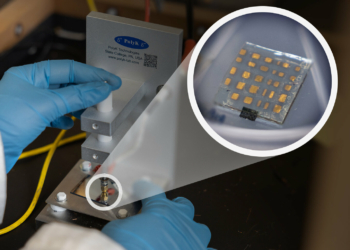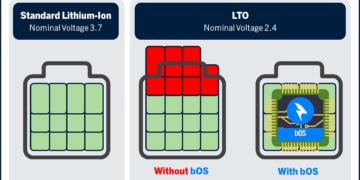A few years back, we had Pepper the robot to visit as a short-term houseguest. Once you got over the playful-but-power-hungry glow of its eyes, the $1,800, “emotion-reading” robot was a decent entertainer: cavorting somewhere between Duplo and Netflix in its capacity to captivate two under-sixes for an afternoon.
But Pepper, once you looked past the novelty of its act, was fundamentally a huckster: a shiny-suited over-seller of its limited wares. And it was not just any old salesman. The robot, as the prized creation of SoftBank and embodiment of the great vision of the company’s founder-futurist, Masayoshi Son, was the huckster’s huckster.
On its mechanised shoulders rested the thrilling promise of mass-market, artificially intelligent humanoids in the home and, more broadly, of Son being as right about consumer-facing household robots as he had been about the broadband, smartphones and chips that underpinned SoftBank’s fortunes. Which is why this little automaton’s fate, and the spin that now surrounds it, has been so engrossing.
Last week, SoftBank confirmed a Reuters report that it had not only indefinitely stopped production of Pepper last summer, but was restructuring the Paris hub of its robotics business — the unit critical to Pepper’s development since SoftBank’s 2012 acquisition of the French company, Aldebaran Robotics. The most inattentive observer of Pepper’s stumbling infiltration of human society will not have been shocked by the news.
Since its introduction to the world seven years ago, Pepper has largely failed to meet its promise. It has not disgraced itself, and it is always possible that it has, somewhere in its travels, inspired a future generation of robot engineers. But its work as an ambassador of automation has been mediocre, its functionality limited and the idea of this expensive marionette finding a natural, meaningful place in private homes has looked increasingly far-fetched.
At least 27,000 Peppers (SoftBank claims the number is higher but will not specify) have been produced, with many of those left gamely watching customers ignore them at SoftBank’s mobile phone stores. Others have been drafted in to greet and gabble at airports, museums and the like. Dozens were pressed into service as pandemic-era audiences for sports events; many can nowadays be spotted in the furthest recesses of Tokyo shops, their heads bowed and their power cords resolutely unplugged. It has clearly outlived its unnatural life.
But wait, SoftBank protested vigorously: do not write off this particular humanoid or our wider commitment to the vision of home robots. Nothing has changed. The Pepper mill may currently be suspended, said a spokeswoman, but it will resume when inventories are cleared and demand resumes.
The critical question here is not when the market will scream again for more Peppers — because it almost certainly won’t — but why SoftBank is so reluctant to declare Pepper dead and introduce us to its successor. In maintaining support for Pepper, SoftBank appears to be missing one of the most important features of humanoid robots: that, for now at least, they are supposed to fail.
The important distinction, portrayed starkly by every robotics trade event, is between the serious robots of factory automation, military or medical use and the (often humanoid) waiters, pancake-flippers and shirt-folders. The former are ready to transform your factory, logistics centre, nursing home or battlefield today. The latter are there to peddle the future with concepts of guiltless servitude, unconditional companionship and, above all, ambition. The first group wows with what it can do; the second demands forgiveness for what it cannot yet, but with a twinkle that says, “I will be worthy one day, master.”
The only way this second group maintains its allure is with the notional existence of a large, constantly growing scrapheap — a place that Pepper now belongs not because it is awful, but because a better robot should currently be whirring in to take its place. The problem for SoftBank, as suggested by Pepper’s non-death, is that while there is plenty of leeway for Son to be wrong about many of his tech investments and still emerge an overall winner, he is more vulnerable to criticism when it comes to stated visions of the future of the sort that Pepper inhabited.
If SoftBank’s problem is that it has not, in fact, invested in a successor to Pepper (which would also fit with the company’s heavily reduced stake in robotics group Boston Dynamics), then we should expect an explanation of why home-based humanoid robots are not in our immediate future. If it has, now is the time to present the heir to the world. Either way, SoftBank should not mourn the death of this particular salesman.
leo.lewis@ft.com















